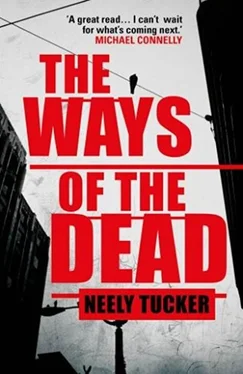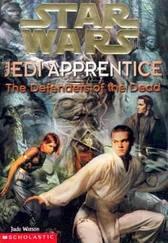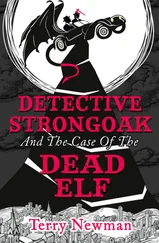“You take any pictures of Lana? Like, naked?”
“What, I look like a freak? And who’s gonna pay for them holes in the ceiling?”
***
The rest of the list he checked out by dark.
Jasper had moved, and nobody knew where. Nobody answered at Green’s. Darrell Turner, living on the top floor of a two-story walk-up, didn’t answer. Sully knocked and could hear footsteps on the wooden floorboards inside. A shadow, blocking the light at the bottom of the door, someone just on the other side, not moving. There was no peephole. Sully knocked again, the person stood there, three inches away, not moving. Sully tensed, holding his breath, watching the shadow beneath the door. It didn’t move. He backed way, not turning his back, and left.
By the time he got back home, getting ice into a plastic bag, putting the bag on his jaw, trying to lower the welt that Darden had given him with the gun, he felt it coming on. Darden, Darden had rattled him, Jesus Christ. This fucking job, the dipshits you had to deal with… Your nerves, man, your precious bloody nerves. When the shit was going down, he was fine, just fine, always had been. But Nadia, the shell, and now look at him. Just fucking look. The shakes. It was all over and gone and now he had the tremors, standing in his kitchen in front of the refrigerator. His left hand, held aloft in front of his eyes, vibrated all on its own, like a tuning fork. The gun had come up and out and fired as if it had its own mind. The air in his lungs getting less, his chest growing tight, the noise in his head building to a roar, like standing next to a tarmac with a jet taking off, goddammit, just goddamn. He crossed the kitchen in a rush, feeling like he was about to vomit, opening the top of the Dutch door to the backyard, some fresh air, trying not to gag or hyperventilate. Bend over, breathe. Deep breaths now. Come on. Come on. It was alright. It was alright now. It wasn’t the night on the mountain. It wasn’t. It was all okay. The doctor at Landstuhl, he’d told him there would be things like this, and he should have stayed on the medication, yes, he should have, but he just couldn’t stand the shrink looking at him, asking him questions. He felt his breath coming back to him. The left hand, when he held it aloft, was slowing down. There was a crystal tumbler right there on the counter. Five cubes of ice and a splash of Basil’s, sit on the back porch… and then, shit, he remembered the community meeting he’d caused, the panicked citizens of Park View, worried a serial killer was loose among them.
The Park View Recreation Center sat at the corner of Warder and Otis, an early 1970s American urban renewal project, its no-frills brick architecture testifying to government frugality and the utter lack of Nixon-era imagination. Thirtysomething years of use made it look sixtysomething years old, a hulking relic from another time, a mound of metal and brick filling space in a low-slung skyline.
The noise of the community meeting, being held on the basketball court, reverberated before he got into the arena itself. He checked his watch. Nearly seven. Dick Jensen was already at the microphone, trying to talk over the accusations.
“So you saying three dead girls and no arrest is nothing we need to worry about,” the man at the microphone in the audience was saying. He was standing, holding the microphone with both hands even though it was on a stand, as if he had a choke hold on a python. Impossibly skinny, he looked to Sully to be Ethiopian. “I got girls here. I got a wife here. I got-”
“You got what we all got here, which is a stake in a safe place to live,” Jensen cut in, louder. “Don’t look at me and think because I’m white I don’t give a damn or that I can’t tell your son in baggy pants from a three-time loser just out of Lorton.”
Jensen had surprised himself with the outburst, Sully saw, taking a seat in a folding chair at the back of the crowd. He’d also silenced the audience. The tension hung, suspended, somewhere high in the room, as if in a balloon that might pop.
“Look,” Jensen said, his voice lowering. “We’ve been at this nearly an hour. All of you are upset. I get it. I am lead detective for MPD on the Noel-”
“And you ain’t done shit !” a woman shouted. “Where’s the lead cop on the Hispanic girl?” A roiling flush of crowd noise followed, “Whoo” and “That’s it” and “Can’t hear ya now” and clapping and an unfocused surge of hoo-has and catcalls and emotion that seemed to swell from the back of the room to the front, the balloon threatening to burst.
“If you’d let me finish ,” Jensen said. His voice was exasperated and tight, the words clipped. Wearing a three-piece suit, keeping the jacket on, Sully figured, to keep the sweat stains from showing under the armpits.
“ I am the lead on the Noel Pittman case. Lead on Pittman, and liaison to the Sarah Reese case, which is being worked, in our shop, by my partner, Billy Hairston, who is seated just to my left. Billy-” He reached over, a gesture, making sure people saw a stern black face, Hairston with his shaved head, arms folded, pot-bellied, looking grumpy, looking mean.
“So I’m looking at Pittman for any ties, similarities, you see what I’m saying? I’m not going to be defensive up here. The chief, over here to my right, and Council Member Belham, over there to his right, asked us to take time out of our work to be available. If I wasn’t here, I’d be working on the cases you care about instead of talking about them.”
The room quieting now, people sitting back down.
“I’ve been working major crimes in this city since Ford was in office. I know you’re worried. I know you saw the story in the paper, maybe watched some of the TV. But I want to stress this: There is nothing true today that wasn’t true last month or last week. You and your children, your family? You’re in no more danger than you were last Christmas, on the Fourth of July, or this morning when you woke up. The only thing that’s different is a misleading newspaper story. It takes three deaths that took place in a small area and suggests a link between them based on their proximity and nothing else. It’s ridiculous. Newspapers, television stations, the radio-they don’t have to be right at the end of the day. They don’t put people in prison. They got what they wanted here, which is a reaction. They sold some papers.
“We are the police, and we have to get it right. It’s not as easy as publishing stories with selective facts and scaring people. Billy here did the work on the Escobar homicide. Which, as you know, took place right outside. There has never been a viable suspect. I can sit here and talk till I’m blue in the face about the work we have done on that, but one thing I can tell you is that no one, absolutely no one, has told us they saw anything. At all. Did you see something? Do you know something? Did all this prompt a memory?”
His eyes went over the room, trying to catch an eye looking a second longer at him, a head with a half nod, a shoulder sagging with the weight of responsibility. Sully couldn’t see if anyone responded, but it was fully quiet for the first time since he’d entered the gym.
“Tell me later. You don’t have to come say now. You know where we are.” He nodded to his partner, pacing to his right, then took a step back from the microphone, looking like he’d forgotten his place in a speech, like he had overrun some mental mark and now didn’t know where he was going.
He approached the microphone again, speaking while he still had the room, selling his sincerity, selling that sense of purpose, a man with a sober haircut and a gun on his hip, working to get that trust, that tip. “I can also tell you that we just discovered Noel Pittman’s body, and the list of cooperating witnesses is just as long as in the Escobar killing. Zero. Nada. We’re working that case as the forensics dictate. The Sarah Reese case, we got a break. Someone identified suspects. Someone told us who they were. That is the one and only reason we’ve made an arrest. That one is white and the other two are not is coincidental.”
Читать дальше












